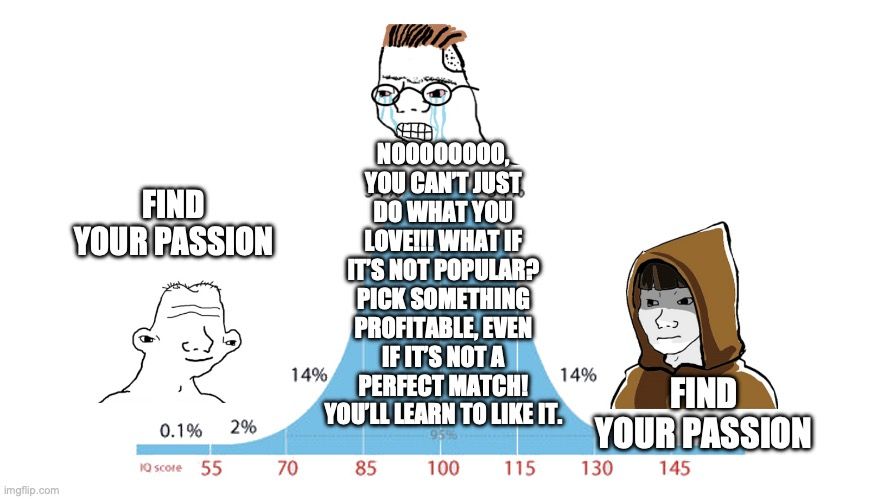Have You Found Your Answer?
Follow your energy. Even unsuccessful startups can take years of your life.

- We talk about how the founders’ abilities, background, and traits match what the market demands—that’s founder-market fit.
- How to hire with a focus on excellence?
- OpenAI DevDay keynote.
- New research paper by Google provides evidence that models like GPTs cannot generalize beyond their training data.
- Elon Musk and xAI plan to launch a ChatGPT competitor named Grōk. Apparently, when you’re the one in control, AI suddenly doesn’t pose any risk.
“If your startup really takes off, be prepared for a 10-15 year commitment.”
That’s what I was told when I started. While some CEOs step back after their company is acquired or goes public, the truly successful ones stay actively involved for years, sometimes decades. Think Mark Zuckerberg. It’s a long-term game.
And I thought I was ready. I really went for it. For years, I read all about startups, worked on extra projects, went to hackathons, and learned about sales and marketing. I did all that because just being passionate didn’t seem like enough. I was thinking strategically: you should be good at something big enough that you can use it in different situations, then pick the best options based on how much impact they’ll bring or how much they could earn you. For me, that was making products. I just loved building things, no matter what they were.
Looking back, I believe I chose this approach because I was scared—scared of getting too caught up in passion projects that no one else cared about. That’s a common trap for programmers who start their own businesses.
But I wanted to be different. I wanted to succeed.
That’s why, for my last project, I went for the real estate sector. It wasn’t because I loved real estate so much; it was the excitement of starting a company from scratch that I was after. That would be the real kick for me. I chose real estate on purpose: it’s got a huge market, lots of different customers, and plenty of money to go around.
I thought I was boosting my chances.
I wasn’t.
“But if the project doesn’t take off, you’ll waste 5-7 years of your life anyway.” Just to be clear, more experienced founders warned me about this as well, but I was 21 at the time. I didn’t want to listen.
And I ended up feeling trapped. Maybe if the business had really grown, my feelings would have changed. But I doubt it. Six years in, I saw that I hadn’t actually enjoyed the journey. If the business had taken off, I would have been tied down even more to an industry I never really loved. In a way, I would have been locked in a golden cage—not the worst situation, but not one I would have chosen if I knew better. (I feel like this often happens to lawyers and doctors.)
Sometimes you have to get what you want to understand you didn’t want it after all.
It was the classic midwit trap. The simple advice is to do what you love. Here’s what the midwit would say: “NOOOO, you can’t just do what you love; what if it’s not popular? Pick something profitable, even if it’s not a perfect match! You’ll learn to like it.” Yet, the real outliers will tell you to follow your interests and give yourself the freedom to explore the weirdest shit.

Sure, think about the practical stuff like success and money, but don’t let it kill your passion. Don’t be ruled by it. That’s not the way to live. Otherwise, you’ll spend your best years working on things you don’t enjoy for people you don’t even respect.
Just trust yourself and follow your energy. Believe you’ll find your answer, as cliché as that may seem.
Your questions, answered…
Acting Upbeat emphasizes optimism as an almost universally positive trait. Are there any scenarios where excessive optimism could backfire?
A reader sent me a great question—thanks for that! Yes, I believe that optimists need to master some skills to get better results in a few areas.
Research shows that people who aren’t depressed usually think they’re doing better than they really are. They believe they’re more skilled and have more control than they actually do. But people with depression often see things more clearly and honestly, especially the tough parts of life. This is called depressive realism. So pessimists might be better at guessing how things or people will turn out.
From what I’ve seen, hiring is a good example. If you’re an optimist, you might talk yourself into believing a not-so-great candidate will do fine on your team because you see something you like in them. They might even improve with time and effort. But with startups, you usually don’t have much time, and you need to put all your energy into finding what your customers want. So, bringing on people who aren’t top-notch from the start usually isn’t the best move—unless they can get really good, really fast, and not everyone can do that.
There’s a way to fix this, though. You create a list of must-haves for your hires and stick to it, no exceptions. It might seem harsh, but your hiring team has to understand it’s either hell yeah or no. You can’t waver on this. If there’s any hesitation, that’s a red flag. This approach protects you from your own optimism, which can sometimes make things tougher instead of smoother.
This post offers just a taste
Ready to stay ahead of the curve? Unlock the full experience and gain access to hand-picked tech industry intel. Don’t miss out on the ideas that will shape the next decade—subscribe to Before Growth now.
SubscribeAlready have an account? Log in



